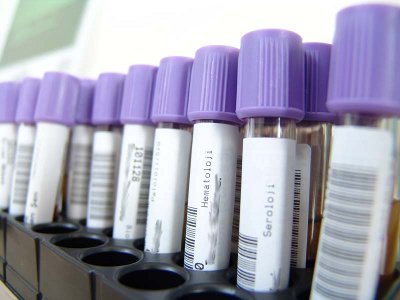New APHSS Testing Protocols to Take Effect Aug. 19
 CANOGA PARK, Calif. – Tests for three additional sexually transmitted infections have been added to the health-screening panel recommended for all adult-industry talent who perform sexually explicit scenes, Adult Production Health & Safety Services announced late Thursday.
CANOGA PARK, Calif. – Tests for three additional sexually transmitted infections have been added to the health-screening panel recommended for all adult-industry talent who perform sexually explicit scenes, Adult Production Health & Safety Services announced late Thursday.
The health screenings are voluntary, but many adult entertainment content producers require performers to show proof they are disease-free before allowing them to work. Requirements for a “clean” test range from every 14 to every 28 days, depending upon the producer.
APHSS, a nonprofit performer welfare organization and watchdog, maintains a confidential database of test results provided by approved facilities, helps studios determine which performers are available to shoot sex scenes, and serves as an industry-wide notification system in the rare instances of confirmed disease outbreak.
The new tests — for Trichomoniasis Vaginalis, Hepatitis B and Hepatitis C — will become part of the standard performer test panel effective Monday, Aug. 19.
“The medical advisory council that works with APHSS has recommended the addition of these tests to the regular monthly and twice-monthly tests for performers,” said Diane Duke, chief executive officer for adult industry trade association Free Speech Coalition, which manages APHSS. “Plans to add these tests had been in the works for the past few months and were scheduled to go into effect Sept. 1. However, at the request of several industry stakeholders, we will start the new protocols as of Aug. 19.”
Test performed on or after Aug. 19 must include the three new tests in order for the results to be included in the APHSS database, Duke said. The added protocols are:
- Every 28 days, performers will be required to take blood tests for Hepatitis B and C.
- Every performer panel (28 or 14 days) will require a urine sample for Trichomoniasis.
Tests for HIV, gonorrhea, syphilis and chlamydia already are part of the standard panel.
“Trichomoniasis is a common sexually-transmitted bacterial infection,” Duke explained, adding that the infection easily is cured with antibiotics. “The doctors on the APHSS advisory council have helped to develop protocols for Trichomoniasis as well as Hepatitis B and C because these are the next steps for guaranteeing that we have a robust and comprehensive system of testing for performers.”
For more information about APHSS, sexually transmitted diseases, the adult industry’s self-regulation efforts or testing protocols, visit APHSS.org or call 818-348-9373.









